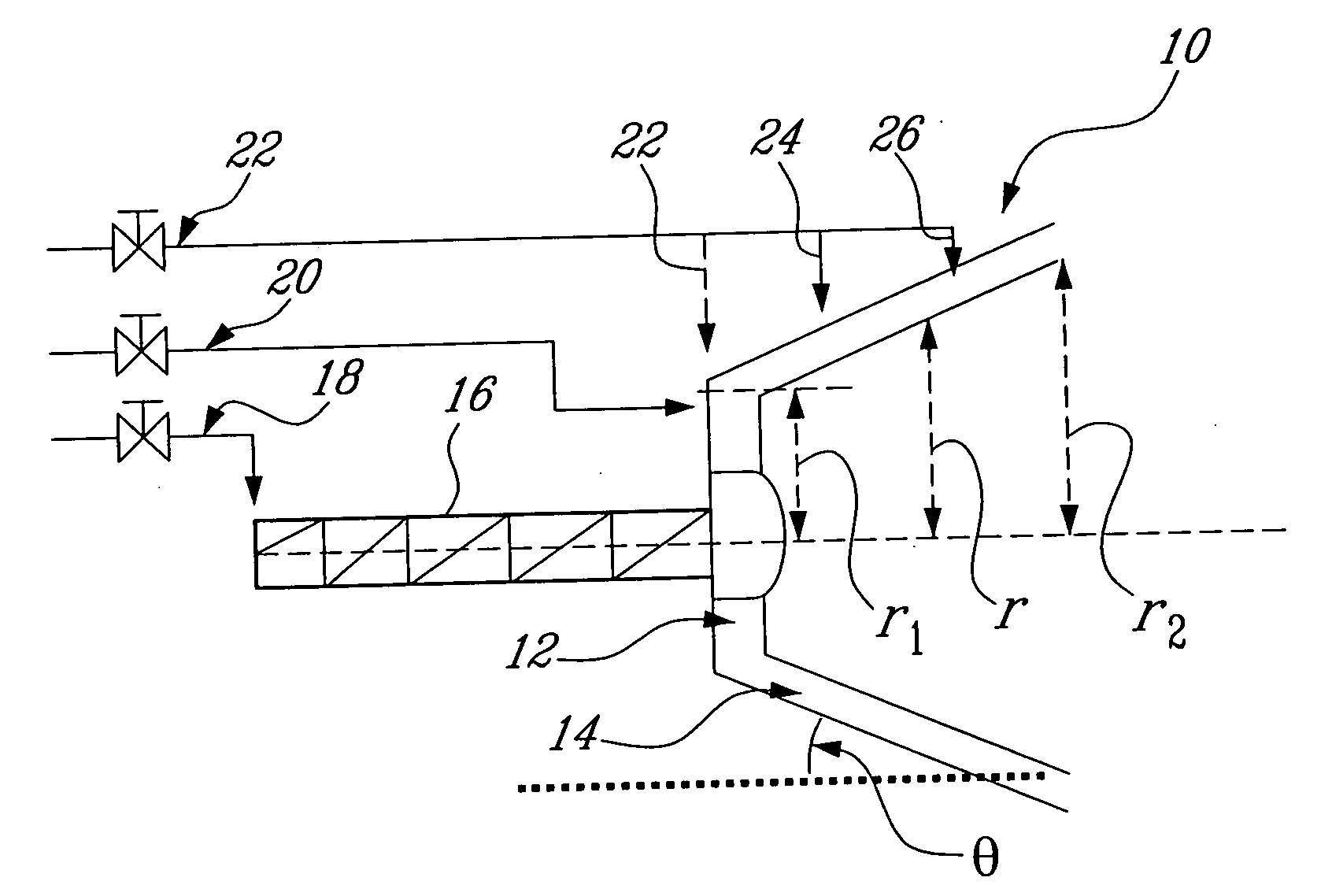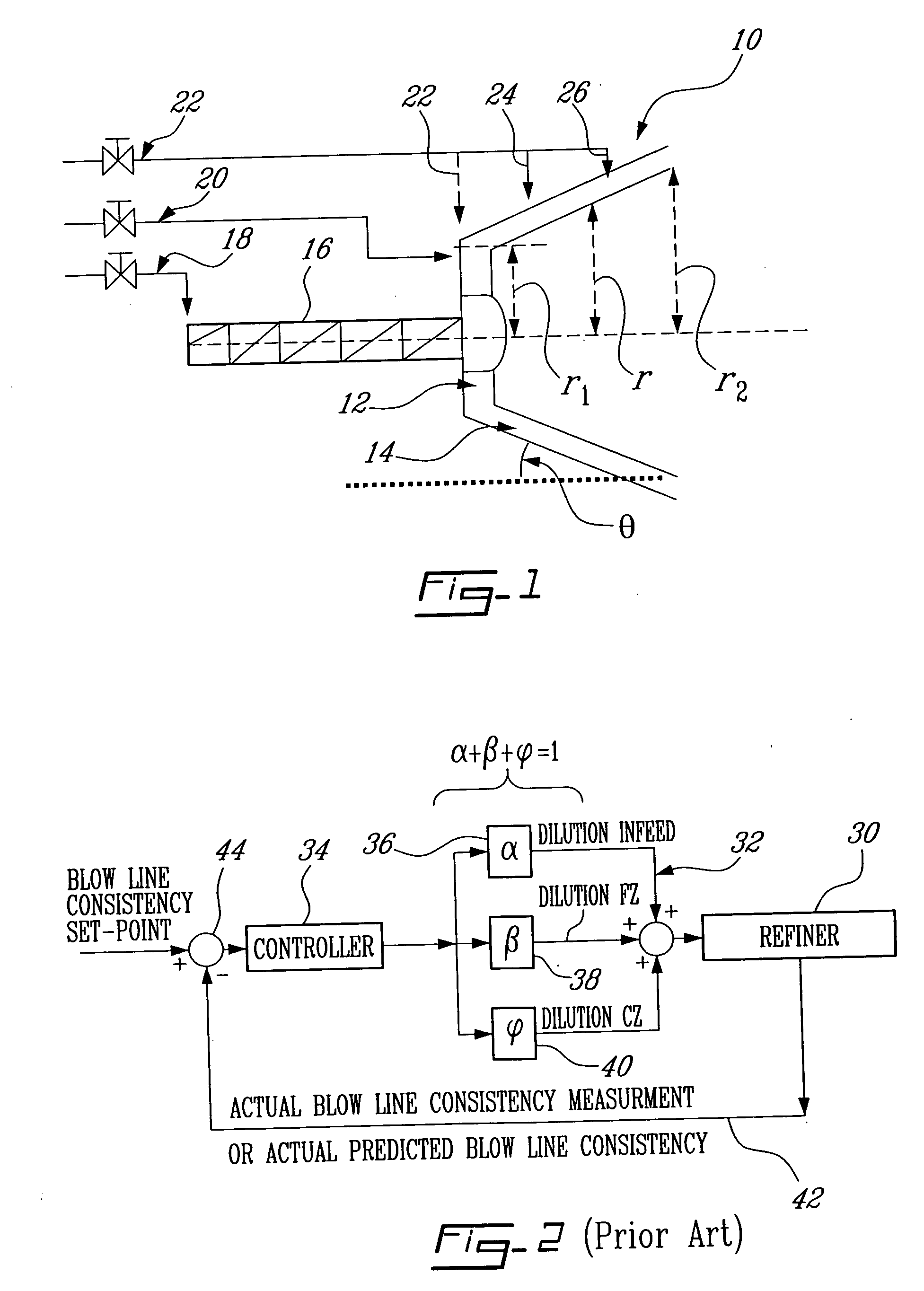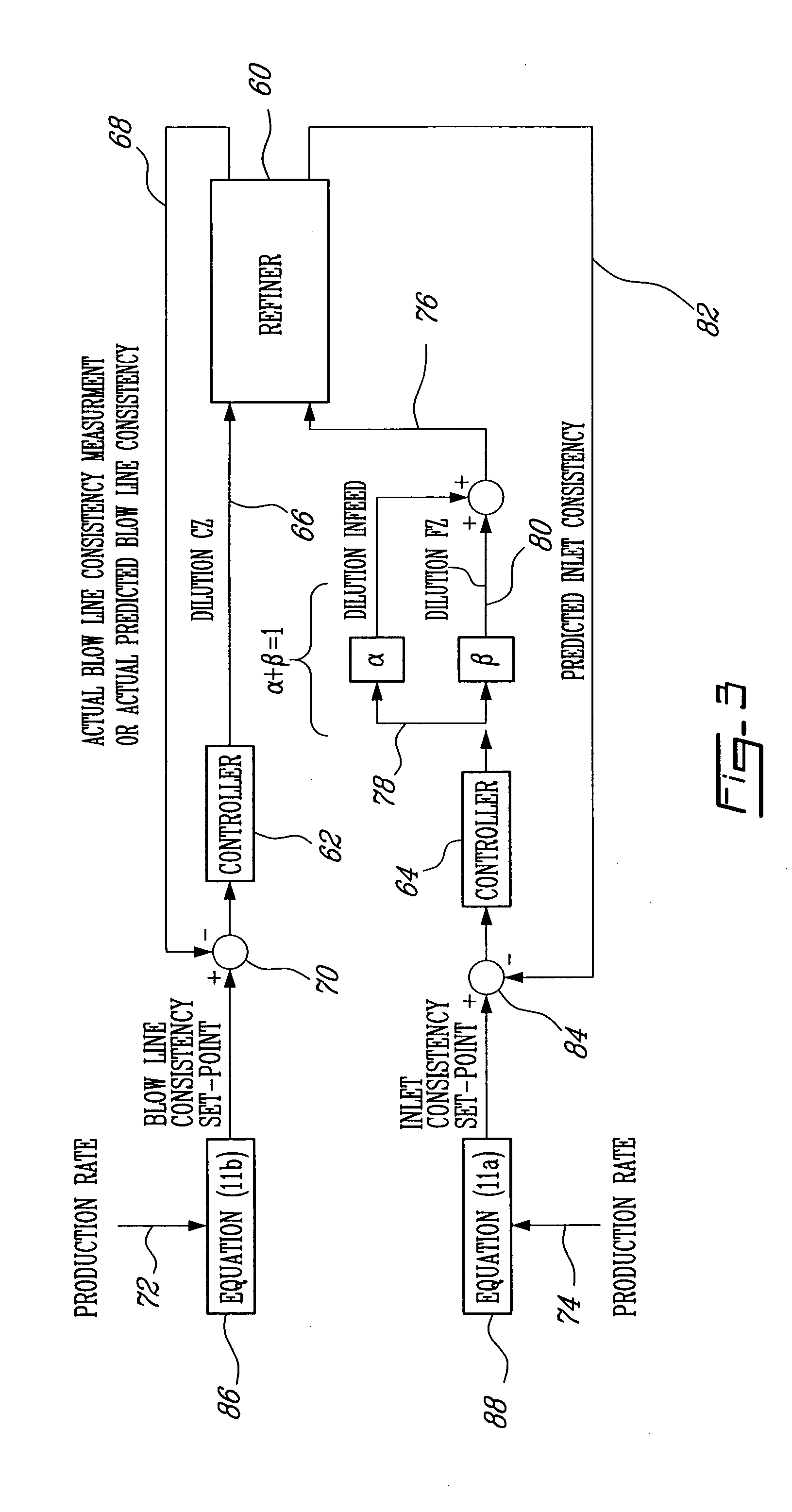Method of refining wood chips or pulp in a high consistency conical disc refiner
a technology of conical discs and refining machines, which is applied in the field of wood pulp refining, can solve the problems of affecting the consistency of the single loop control scheme, the effect of specific energy, refining intensity and pulp quality, and the inability to control the consistency of the single loop, so as to achieve the effect of avoiding increasing the consistency at the inlet of the refiner, and avoiding the plugging of the pla
- Summary
- Abstract
- Description
- Claims
- Application Information
AI Technical Summary
Benefits of technology
Problems solved by technology
Method used
Image
Examples
Embodiment Construction
[0033] With further reference to FIG. 1, a conical refiner 10 is illustrated schematically. Conical refiner 10 has a gap flat zone 12, and a gap conical zone 14.
[0034] Conical zone 14 may be considered to comprise a multiplicity of zones of different radii, for example at radii r1, r and r2 in FIG. 1. Conical zone 14 has an angle of slope θ.
[0035] Refiner 10 has an inlet 16 for chips or pulp to be refined, and dilution infeed line 18, dilution flat zone line 20 and dilution conical zone line 22 for feed of dilution water to inlet 16, flat zone 12 and conical zone 14, respectively. Line 22 may have branch line 24, 26 and 28 for feeding dilution water in line 22 to different parts of conical zone 14. Thus, for example, branch line 24 feeds dilution water to an upstream or inlet end of conical zone 14.
[0036] With further reference to FIG. 2, there is shown schematically a prior art refining system in which a refiner 30 has a dilution unit 32 and a controller 34.
[0037] The dilution ...
PUM
| Property | Measurement | Unit |
|---|---|---|
| Flow rate | aaaaa | aaaaa |
| Heat | aaaaa | aaaaa |
| Residence time | aaaaa | aaaaa |
Abstract
Description
Claims
Application Information
 Login to View More
Login to View More - R&D
- Intellectual Property
- Life Sciences
- Materials
- Tech Scout
- Unparalleled Data Quality
- Higher Quality Content
- 60% Fewer Hallucinations
Browse by: Latest US Patents, China's latest patents, Technical Efficacy Thesaurus, Application Domain, Technology Topic, Popular Technical Reports.
© 2025 PatSnap. All rights reserved.Legal|Privacy policy|Modern Slavery Act Transparency Statement|Sitemap|About US| Contact US: help@patsnap.com



